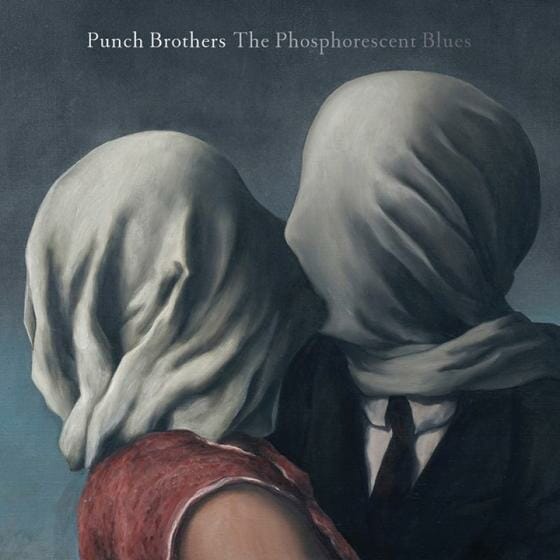Punch Brothers: The Phosphorescent Blues

Americans are sick, the Punch Brothers tell us on their fourth studio album. But our mutual affliction isn’t the viral kind—at least not in the traditional sense. “Your trouble vibrates the table,” sings mandolinist Chris Thile, backed by a sprightly churn of banjo, fiddle and upright bass. “There’s nothin’ to say / that couldn’t just as well be sent / I’ve got an American share / of 21st century stress.”
Over the past nine years, Punch Brothers have helped popularize “prog-grass”—a forward-thinking movement that utilizes traditional bluegrass instrumentation while weaving in elements of classical, alternative rock, jazz and even mainstream pop. Essentially, the quintet (Thile, violinist Gabe Witcher, banjoist Noam Pikelny, guitarist Chris Eldridge, bassist Paul Kowert) are modernizing the bluegrass format for the 21st century. The Phosphorescent Blues adds emotional resonance to that approach, underpinning the band’s tasteful virtuoso playing with a lyrical concept about artificial connection—namely, our culture’s addiction to smartphones.
-

-

-

-

-

-

-

-

-

-

-

-

-

-

-

-

-

-

-

-

-

-

-

-

-

-

-

-

-

-

-

-

-

-

-

-

-

-

-

-








































